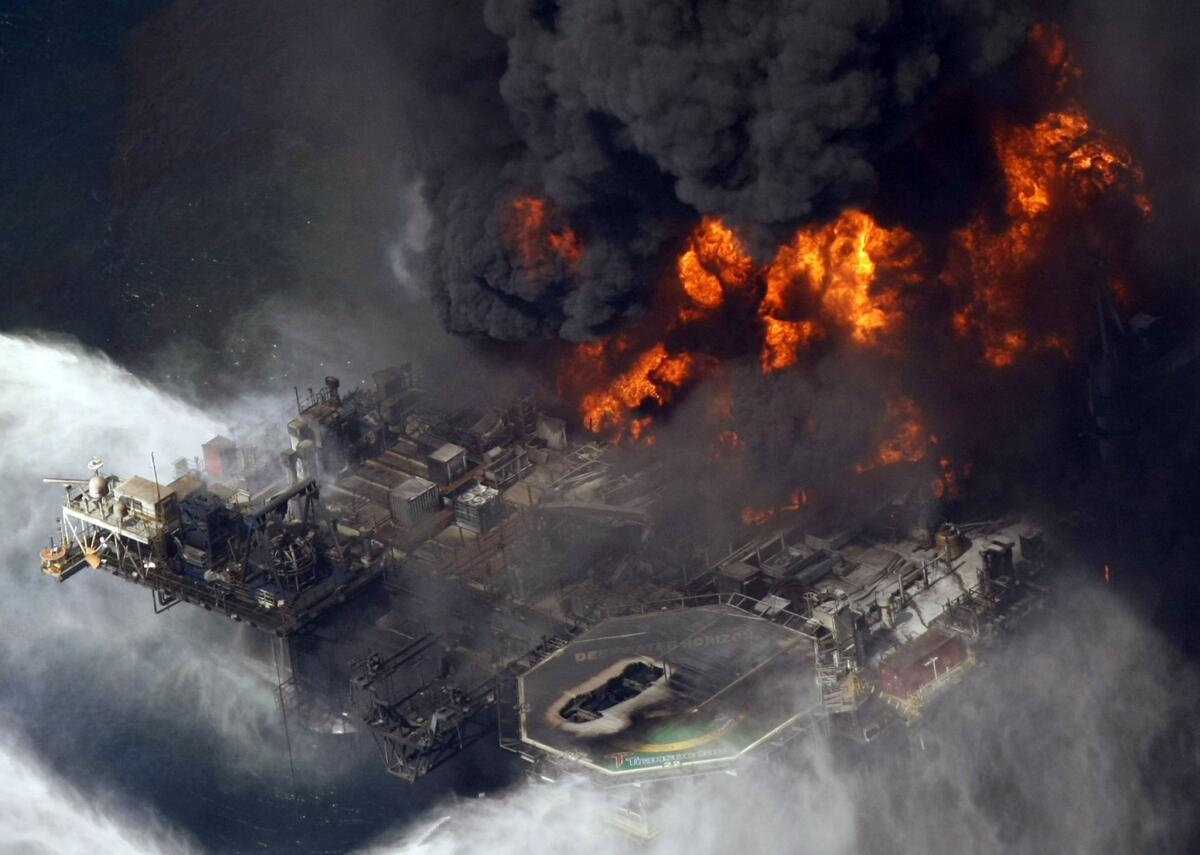On the gulf oil spill, BP moves to prolong the courtroom agony

Running true to form, BP announced today that it will continue its effort to undermine a legal settlement the company itself helped craft by taking its campaign to the Supreme Court.
To be precise, BP will appeal rulings from the Fifth Circuit Court of Appeals issued Monday. The appeals court held that BP had reached its settlement of damage claims stemming from the 2010 Deepwater Horizon oil rig explosion fair and square, and had no grounds to back out.
The victims of the oil company’s protracted litigation strategy are businesses with damage claims from the oil spill. Their compensation payments have been frozen during the company’s legal maneuvers; BP says it will ask the Fifth Circuit to keep the injunction barring further payments in place until the Supreme Court speaks.
As we reported earlier, BP suffered an 0-for-2 day at the Fifth Circuit on Monday, when the appeals judges rejected its motions for rehearings on two related cases it had already lost. BP today described the appeals court as “sharply divided,” which is overstating things just a bit: the vote against the company was 8-5 on both motions.
To recap our earlier recap, BP in 2011 settled Gulf Coast businesses’ damage claims by setting up a procedure that avoided long and expensive litigation. Businesses within the affected zone would only have to demonstrate that their income traced a particular pattern: a sharp drop immediately after the spill, followed by a sharp recovery some time later.
Those who met that test didn’t have to produce any other proof that their losses were spill-related. It was well understood at the time that the settlement might benefit some businesses whose losses fit the pattern but actually had nothing to do with the spill. The company accepted that, in writing, on the grounds that a few false positives were a small price to pay to keep things moving along for the benefit of the other claimants and the company itself.
Then, as the settlement cost mounted, BP changed its tune. It filed suit to overturn the deal--and lost at every level of the judicial system. The company also beat the bushes to find news organizations that would see its side of the story. The CBS program “60 Minutes” bit, airing a piece a couple of weeks ago that portrayed BP as the victim of gangs of conniving tricksters aiming to suck it dry via fraudulent damage claims. As we observed back then, “60 Minutes” used to have a sharper eye for who the real victims usually are when a big oil company wages war with small business owners. (Hint: Typically, not Big Oil.)
“No company would agree to pay for losses that it did not cause, and BP certainly did not when it entered into this settlement,” the company said in announcing its decision to appeal to the Supreme Court.
In taking this step, BP appears to be following the advice of Fifth Circuit Court of Appeals Judge Edith Brown Clement, who has sided with the company throughout its slog through federal courtrooms. In dissenting from Monday’s decisions, Clement, a George W. Bush appointee, cited a couple of supposedly “absurd” settlement payments made to business claimants--”’victims’ such as a wireless phone company store that burned down and a RV park owner that was foreclosed on before the spill.” Her cited source on these examples? “60 Minutes,” which got its info directly from BP.
Clement concluded, “another court surely must resolve this.” There is only one court that can resolve a case heard by a federal circuit bench, and it’s the Supremes. Why shouldn’t BP follow her advice? It’s got plenty of money for lawyers and all the time in the world. As for the Gulf Coast residents, they’ll just have to keep waiting for redress, and crossing their fingers that they get it.
More to Read
Inside the business of entertainment
The Wide Shot brings you news, analysis and insights on everything from streaming wars to production — and what it all means for the future.
You may occasionally receive promotional content from the Los Angeles Times.











